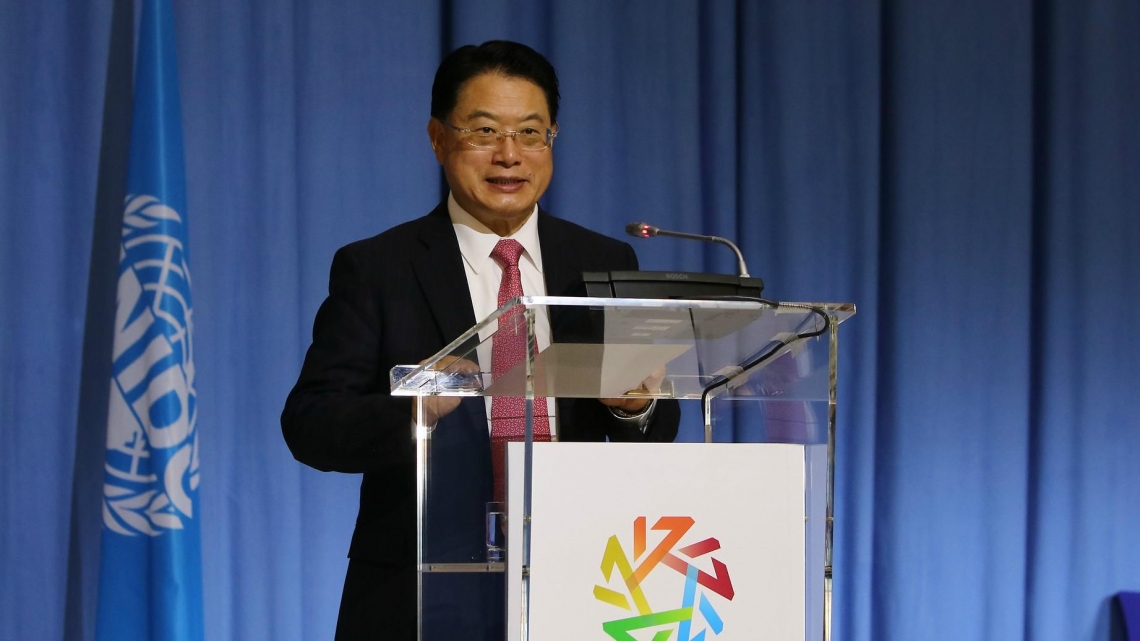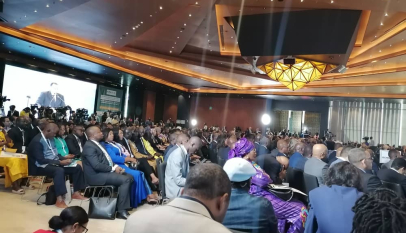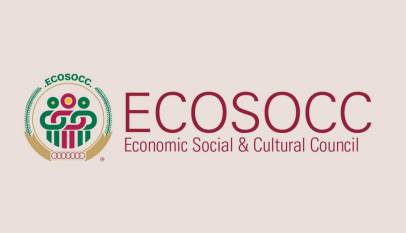Multi-stakeholder partnership key to inclusive, sustainable industrialization in Africa, says UNIDO DG
Director General of the United Nations Industrial Development Organization (UNIDO), Mr Li Young, has described multi-stakeholder partnerships and putting in place effective coordination mechanisms, as critical for attaining inclusive and sustainable industrial development in Africa.

Mr Young made the call while speaking Friday at a virtual high-level session in commemoration of the Africa Industrialization Day 2020. He as well recognized the immense challenges the Covid-19 pandemic had pushed Africa’s fragile economies into adding that the imminent start of trade under the African Continental Free Trade Area (AfCFTA) in January 2021, had more than ever before, made speeding up of Africa’s industrialization process, a matter of urgency.
The UNIDO chief said the establishment of multi-stakeholder partnerships and effective coordination mechanisms, as exemplified in UNIDO’s Programme for Country Partnership (PCP), which had been successfully implemented in Ethiopia, Morocco and Senegal, was crucial for attaining inclusive and sustainable industrial development in Africa.
“In this regard, I am pleased to point out that UNIDO’s Programme for Country Partnership (PCP) has proved to be very effective. It brings various stakeholders, including governments, development partners, UN agencies, development finance institutions and the private sector together. The PCP approach help mobilize funds and leverage large-scale additional investments for infrastructure, industry and innovation, as well as knowledge expertise and technology to support sectors with high growth potential in order to achieve a greater development impact,” he said.
Young described the AfCFTA as offering a concrete avenue for African economies to not only recover from the socioeconomic impact of the Covid-19 pandemic but also thrive.
“However, for the AfCFTA to be successful, deliberate efforts to address structural transformation and industrialization are required. In this regard, policies should also be geared towards strengthening links between trades and industrial strategies and policies, developing industrial infrastructure, promoting regional value chains, upgrading digital capacities, enhancing productive and trade capacities, promoting green industry and circular economies, and developing and upgrading industrial skills,” he said.
Consequent of the need to boost industrial supply capacity in the AfCFTA enlarged market, Mr Young reiterated UNIDO’s commitment to continuously scale up its interventions in this direction, while identifying the African Union Commission, African Union Development Agency (AUDA-NEPAD), Regional Economic Communities (RECs), regional and sub-regional financial institutions, as well as private sector organizations such as AfroChampions Initiative, as key players in boosting industrial supply capacity on the continent.
“UNIDO is confident that going forward, our efforts targeted at promoting inclusive and sustainable Industrialization in the AfCFTA Era, will yield tangible results. I say this confidently because I see the efforts. I see the political commitment of African leadership, including through the decision made by Heads of State and Government at the AU Summit in February 2020 to hold a specific Africa’s Industrialization and Economic Summit, which UNIDO has been called for support.”
In his concluding remarks, Mr Young reiterated UNIDO’s readiness to support AU Member States in their quest to accelerate the productive transformation of the African continent. “We will use every opportunity to support the realization of aspirations and goals outlined in the AU 2063 Agenda and the 2030 Agenda for Sustainable Development,” he concluded.
As the UN’s specialized agency that assists countries in economic and industrial development, UNIDO is a key ally of the AU in its industrialization drive in Africa. In 2016, the UN agency was asked by the United Nations General Assembly (UNGA) to, in cooperation with the African Union Commission (AUC) and the United Nations Economic Commission for Africa (UNECA), implement the Third Industrial Development Decade for Africa (IDDA3), which will last between 2016 and 2025.
















